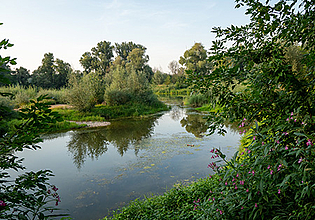News | Friday, 5 April 2024
EU Nature Restoration Law: Science Academies appeal to Member States

Image: Adobe Stock | Christian Ukobitz
The European Academies‘ Science Advisory Council (EASAC), of which the German National Academy of Sciences Leopoldina is a member, appeals to EU Member States not to suspend the Nature Restoration Law. The science academies urge dissenting or abstaining Member States to reconsider their position and take into account the best available scientific evidence and champion the law.
- The measures proposed by the law are of vital importance for food security, biodiversity and the climate.
- The law is a unique opportunity to reward farmers for provision of eco-system services.
- Sustainable ecosystems promote European food-security and the economic interests of farmers.
Europe’s leading scientists cast doubt on the arguments put forward by opponents of the law. In two recent reports on regenerative agriculture (1) and integrated pest management (2), scientists of the EASAC member acdemies have shown that it is possible to maintain yields while reducing environmental impact and improving biodiversity. In its reports, EASAC also supports proposals to direct subsidies towards aiding farmers in transitioning to sustainable practices that will address climate and biodiversity crises.
Over 80% of European habitats are in poor shape. At the end of February 2024, the European Parliament endorsed the EU Nature Restoration Law, which is an essential contribution to fulfil international climate and biodiversity agreements, e.g. the Kunming-Montreal Biodiversity Framework. For the first time ever, the law lays down clear targets for the restoration of degraded ecosystems across all Member States, thereby contributing to the achievement of the EU’s climate and biodiversity objectives while enhancing food security.
After a deal had been struck in November, and subsequent green light by the European Parliament, the law has been taken off the agenda of the Council of the EU for not having the support of the required majority of Member States.
About the European Academies’ Science Advisory Council (EASAC)
EASAC is formed by the national science academies of the EU Member States, Norway, Switzerland and United Kingdom, to collaborate in giving advice to European policymakers. EASAC provides a means for the collective voice of European science to be heard. Through EASAC, the academies work together to provide independent, evidence-based advice to those who make or influence European policies within the European institutions. The National Academies of Science of the EU member states have been working jointly in the EASAC since 2001. The German National Academy of Sciences Leopoldina is also a member of this network.
